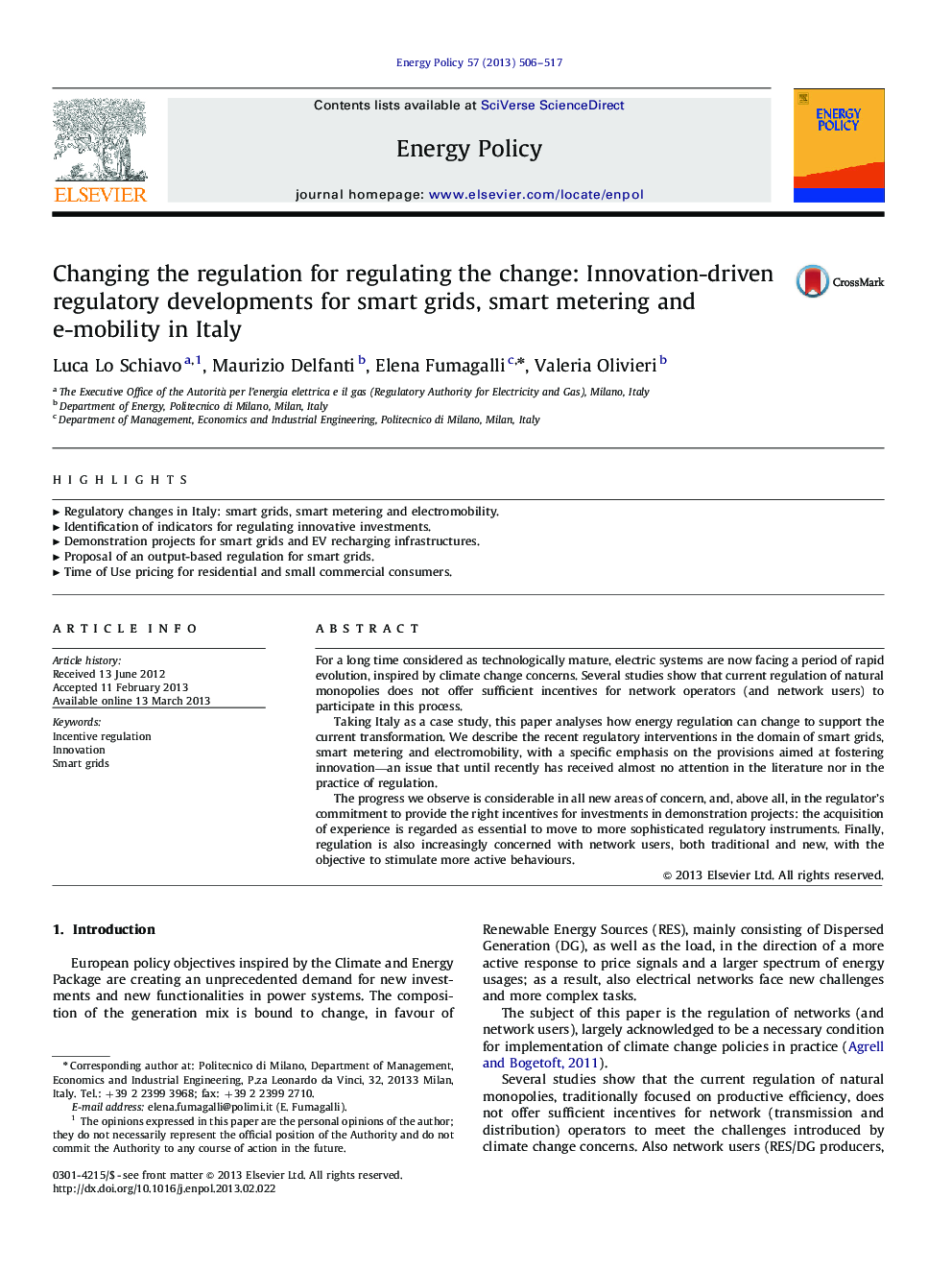| Article ID | Journal | Published Year | Pages | File Type |
|---|---|---|---|---|
| 992994 | Energy Policy | 2013 | 12 Pages |
For a long time considered as technologically mature, electric systems are now facing a period of rapid evolution, inspired by climate change concerns. Several studies show that current regulation of natural monopolies does not offer sufficient incentives for network operators (and network users) to participate in this process.Taking Italy as a case study, this paper analyses how energy regulation can change to support the current transformation. We describe the recent regulatory interventions in the domain of smart grids, smart metering and electromobility, with a specific emphasis on the provisions aimed at fostering innovation—an issue that until recently has received almost no attention in the literature nor in the practice of regulation.The progress we observe is considerable in all new areas of concern, and, above all, in the regulator's commitment to provide the right incentives for investments in demonstration projects: the acquisition of experience is regarded as essential to move to more sophisticated regulatory instruments. Finally, regulation is also increasingly concerned with network users, both traditional and new, with the objective to stimulate more active behaviours.
► Regulatory changes in Italy: smart grids, smart metering and electromobility. ► Identification of indicators for regulating innovative investments. ► Demonstration projects for smart grids and EV recharging infrastructures. ► Proposal of an output-based regulation for smart grids. ► Time of Use pricing for residential and small commercial consumers.
